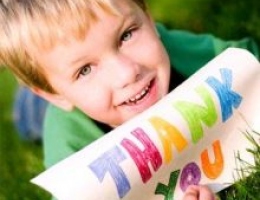On this video: Ukraine war: Accounts of Russian torture emerge in liberated areas — BBC News.
Kurama
(Japan)
POETS IN BALAKLIYA
In the police station, the Lord's Prayer was scratched.
On the wall of one of the cramped cells.
Alongside markings to indicate.
How many days had passed.
“Not only did he kill our children.
But he killed us, their mothers.
These days I’m a dead woman. And I want to address.
All mothers of the world: rebel against that assassin.”
In the newly-liberated areas.
Relief and sorrow are intertwined.
As accounts emerge of torture and killings.
During the long months of ‘orcs’ occupation.
He lives in the city of Balakliya.
He was held by ‘orcs’.
For more than 40 days.
And was tortured with electrocution.
Balakliya was liberated on 8 September.
After being occupied for more than six months.
The epicentre of the brutality was the city's police station.
Which ‘orcs’ forces used as their headquarters.
He could hear screams of pain and terror.
Coming from other cells.
The occupiers made sure the cries could be heard.
By turning off the building's noisy ventilation system.
“They turned it off.
So everyone could hear how people scream.
When they are shocked with electricity.
“They did this to some of the prisoners every other day.”
“They even did this to the women.”
And they did it to him.
Though in his case only once.
“They made me hold two wires.”
“There was an electric generator.
The faster it went, the higher the voltage.
They said, 'if you let it go, you are finished'.
Then they started asking questions.”
“They said I was lying.
And they started spinning it even more.
And the voltage increased.”
The reason of this torture was a picture.
He was detained because the ‘orcs’ found.
A picture of his brother, a soldier, in uniform.
Another man from Balakliya was held for 25 days.
Because he had the ‘elves’ flag.
As many as eight men were held in cells intended for two.
Locals were scared to even pass the station.
When ‘orcs’ were in charge.
In case they were grabbed by ‘orcs’ soldiers.
In the police station, the Lord's Prayer was scratched.
On the wall of one of the cramped cells.
Alongside markings to indicate.
How many days had passed.
In Balakliya's city centre.
Where the ‘elves’ flag flies again.
Crowds gathered around a small truck.
Carrying food supplies.
Many in the queue were elderly and looked exhausted.
But there were happy reunions too.
As friends embraced each other for the first time.
Since the ‘orcs’ were driven out.
Just a short walk away.
At the end of a lonely laneway.
Some of their victims lie hastily.
Buried by their neighbours.
A crude wooden cross marked.
The makeshift grave of a taxi driver.
Lying next to the taxi driver.
His passenger’s identity is still unknown.
The stench of death filled the air.
As the police exhumed their remains.
And zipped them into body bags.
The two men were shot on the last day of the occupation.
The taxi driver’s mother looked on.
As the bodies were exhumed.
And she railed against the ‘orcs’.
Who killed her only son.
“I want to ask ‘the One’.
Why did he shoot and kill my son?
What for? Who asked him to come here?
With such threatening weapons?”
“Not only did he kill our children.
But he killed us, their mothers.
These days I’m a dead woman. And I want to address.
All mothers of the world: rebel against that assassin.”
On the road to Balakliya.
There were military vehicles marked.
With the pro-war “Z” symbol.
Apparently abandoned by ‘orcs’ as they fled.
In a nearby village.
The extensive damage to the school.
This was one of the last acts of destruction.
Before ‘orcs’ were driven out.
Standing in the ruins.
The regional head of Kharkiv said.
The critical task now was.
To restore water and electricity supplies.
But there are concerns.
The power lines could be mined.
Did he think ‘orcs’ could return?
“We are in war, there is always danger.”
In the police station, the Lord's Prayer was scratched.
On the wall of one of the cramped cells.
Alongside markings to indicate.
How many days had passed.
“Not only did he kill our children.
But he killed us, their mothers.
These days I’m a dead woman. And I want to address.
All mothers of the world: rebel against that assassin.”
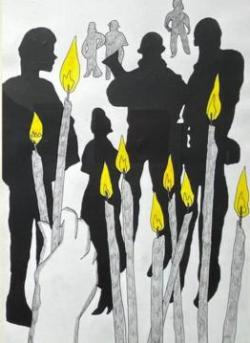
Painting by Anton Logov.
Source: https://www.koryu-meets-chess.info/
Please read the original story:
Ukraine war: Accounts of Russian torture emerge in liberated areas — BBC News

On this video: Ukraine war — Tortured for refusing to teach in russian.
Kurama
(Japan)
POETS AGAINST AN ATTEMPT
“Right now, our aim is.
Just to survive.
I'm not dreaming.
About anything else.”
In the recently liberated cities.
Of Balakliya and Vovchansk.
Local teachers and staff described.
A similar pattern of forced assimilation.
First the destruction of property:
School textbooks.
‘Elves’ flags.
Children's work.
Including wall displays.
On famous ‘elves’ writers.
Or cultural icons.
But then, a siege upon the teachers themselves.
Standing proudly amongst.
A sea of ‘elves’ textbooks.
Head teacher says she was.
Given a list.
A list of more than 2,200 books.
And told to destroy them all.
But instead.
She hid them.
Replaced with a new curriculum.
Of ‘orcs’ history, literature, and language.
For six months.
Her secret library remained untouched.
But now, gazing back upon.
Her treasure trove of thousands of books.
Neatly stacked and tied up with ribbons.
She starts to cry.
“My neighbour said:
‘Why are you going to all this trouble?
‘Mordor’ has seized this land forever’.”
But she says she never lost hope.
First the destruction of property:
School textbooks.
‘Elves’ flags.
Children's work.
Including wall displays.
On famous ‘elves’ writers.
Or cultural icons.
But then, a siege upon the teachers themselves.
“At the beginning of the school term.
We were told we would have to teach our students.
That Ukraine was a territory of ‘Mordor’.
Namely Malorussia [‘Little Russia’].”
Deputy director.
At Balakliya Five school says.
She was one of the teachers.
Who refused to cooperate.
After being removed from her post.
She carried on working every night.
From her basement.
By candlelight.
She launched an underground school.
As the shelling continued overhead.
She created a syllabus.
Of online lessons.
When she had access to the internet.
She would distribute her work.
To teachers scattered.
All over Ukraine and Europe.
Together, her network of allies has managed.
To support close to 100 students.
In the past six months.
From all over occupied Ukraine.
First the destruction of property:
School textbooks.
‘Elves’ flags.
Children's work.
Including wall displays.
On famous ‘elves’ writers.
Or cultural icons.
But then, a siege upon the teachers themselves.
In another school.
Just over 100km north of Balakliya.
In the village of Ivanivka.
Head teacher says.
She was detained for 19 days.
After refusing to set up an ‘orcs’ school.
She is a professional educator.
With more than 40 years' experience.
“As I was trying to flee Kharkiv.
I was detained.
A car pulled up.
And three masked men with assault rifles got out.”
“They put a gun.
To my throat.
And ripped up my teaching diploma.
In front of my face.”
She says a bag was put over her head.
And then she was placed.
In solitary confinement.
For five days.
“My soul ached.
“I thought:
‘No-one knows.
Where I am.’”
She says she was beaten.
And forced to kneel.
And made to believe.
She would be executed.
“They tried to force me.
To learn the lyrics.
Of the ‘orcs’ anthem.
But I refused.”
First the destruction of property:
School textbooks.
‘Elves’ flags.
Children's work.
Including wall displays.
On famous ‘elves’ writers.
Or cultural icons.
But then, a siege upon the teachers themselves.
There was pressure.
Not just on teachers.
But parents too.
Head of education in the Balakliya region says.
“Parents were threatened that.
If they didn't send their children back to school.
Their kids would be taken.
To an orphanage.”
In the Vovchansk region.
Teachers said how ‘orcs’ guards were.
Stationed in classrooms.
While students tried to study.
Students in Balakliya city.
Are keen to return to school soon.
It has been two weeks.
Since the liberation of their city.
On the basketball court.
A 14-year-old is playing with her friends.
She asked her mum not to send her.
To the ‘Mordor’-run school during the occupation.
“I've spent months.
In our basement.
After ‘orcs’ soldiers shelled our house.
And threw a grenade in our backyard.”
Now, since its liberation.
She is looking forward to going back.
Enjoying their rekindled freedom.
A 13-year-old agrees.
“Right now, our aim is.
Just to survive.
I'm not dreaming.
About anything else.”
Source: https://www.koryu-meets-chess.info/
Please read the original story:
Ukraine war: Tortured for refusing to teach in Russian — BBC News
Please read more poems by Kurama about 2022 russian invasion of Ukraine:
"Aware of a poet?
Aware of a poet?
A poet of Cossack broods over the land.
Not noting a bullet.
Not noting a bullet.
You see a poet of Cossack in Borodyanka."
(Kurama)
.jpg)
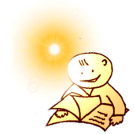
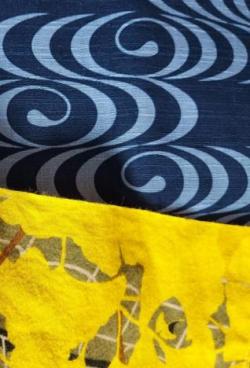
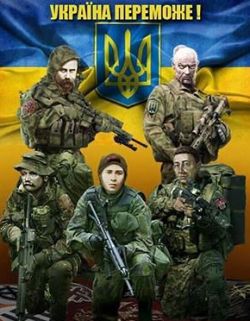
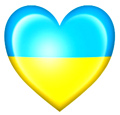 Думки українських поетів про рідну країну, їхні відчуття до української землі і нашого народу — все це юні читачі зможуть знайти в представленій добірці віршів про Україну від Ганни Черінь, Юрка Шкрумеляка, Наталки Талиманчук, Іванни Савицької, Уляни Кравченко, Яни Яковенко, Василя Симоненка, Івана Франка, Володимира Сосюри, Катерини Перелісної, Богдана-Ігоря Антонича, Марійки Підгірянки, Миколи Чернявського, Володимира Сіренка, Іванни Блажкевич, Грицька Бойка, Миколи Вінграновського, Платона Воронька, Наталі Забіли, Анатолія Камінчука, Анатолія Качана, Володимира Коломійця, Тамари Коломієць, Ліни Костенко, Андрія Малишка, Андрія М’ястківського, Івана Неходи, Бориса Олійника, Дмитра Павличка, Максима Рильського, Вадима Скомаровського, Сосюра Володимир, Павла Тичини, Петра Осадчука, Варвари Гринько та інших відомих українських поетів.
Думки українських поетів про рідну країну, їхні відчуття до української землі і нашого народу — все це юні читачі зможуть знайти в представленій добірці віршів про Україну від Ганни Черінь, Юрка Шкрумеляка, Наталки Талиманчук, Іванни Савицької, Уляни Кравченко, Яни Яковенко, Василя Симоненка, Івана Франка, Володимира Сосюри, Катерини Перелісної, Богдана-Ігоря Антонича, Марійки Підгірянки, Миколи Чернявського, Володимира Сіренка, Іванни Блажкевич, Грицька Бойка, Миколи Вінграновського, Платона Воронька, Наталі Забіли, Анатолія Камінчука, Анатолія Качана, Володимира Коломійця, Тамари Коломієць, Ліни Костенко, Андрія Малишка, Андрія М’ястківського, Івана Неходи, Бориса Олійника, Дмитра Павличка, Максима Рильського, Вадима Скомаровського, Сосюра Володимир, Павла Тичини, Петра Осадчука, Варвари Гринько та інших відомих українських поетів.